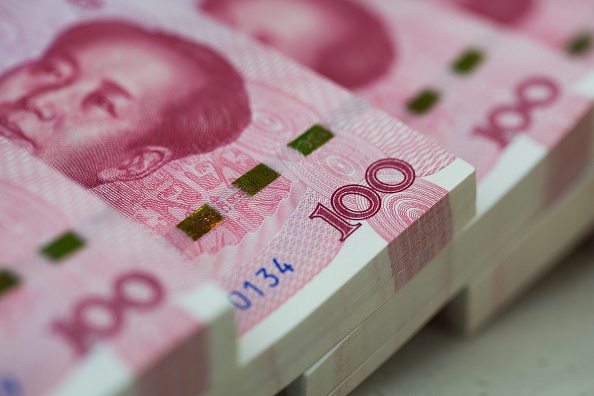Skift Take
Priceline Group's CEO Glenn Fogel has repeated his view that Asia is the company's most important market. We don't think he'll try to acquire Ctrip. But additional moves are possible.
Think of it as the China conundrum. Like many Western companies before it, the Priceline Group, according to chief executive Glenn Fogel, is reviewing its options on how to further invest in China and Asia more broadly.
Speaking during the company’s second quarter earnings call Tuesday, company officials noted that Asia-Pacific represents one of Priceline’s greatest opportunities but also one of its biggest challenges.
“China is by far the most important region for us to continue to develop our business there because that’s where the greatest growth is going to be,” Fogel said.
“We’re always concentrating on our inbound because we have so many customers around the world who are going to China. So we have a little bit of advantage in that one.”
On inbound to China, Priceline’s largest brand, Booking.com, does well on its own from Europe, and sibling Agoda does well from the rest of Asia, officials said.
“Agoda is using technology to maintain a high level of competitiveness, employing machine learning to price effectively and continuously improving its front end through relentless experimentation,” Fogel said.
Fogel said Priceline is also investing in growing its China outbound reservations “because of the number of properties we have around the world … that gives us a good edge there.”
He said: “The last part is domestic Chinese business — people in China who are traveling in China. It’s tougher for a non-Chinese company. We’re doing a lot of thinking what’s the right way to approach it.”
One of The Most Competitive Regions
Fogel said that while Agoda reported bookings growth, it and Priceline’s other brands have faced headwinds. He put the move into context:
“Over the two decades almost that I’ve been looking at Internet companies is that when you have very strong growth opportunities, you have a lot of players come in. And the players come in with a lot of capital.
“Today, Asia it’s very much a land grab: People trying to get market share as quickly as possible, build up brand awareness, build up their name and try and get customers. And one of the ways they do this is raising capital and giving it away to customers, so, essentially discounting or other practices to try and build that business quickly as they can. That’s the competitive scenario.”
Discounting in China makes it especially tough for public companies that have to be concerned with shareholders and profits.
“If you look at prices for accommodations in Asia, it is one of the most competitive places in the world,” Fogel said. “And that makes it more difficult for public companies that have certain desires to hit profitability levels versus a private company perhaps that isn’t constrained the same way and goes out and raise capital and then gives it away in the marketplace to the consumer with discounts and in fact selling accommodations at a loss.”
Complicated Options
In Skift Research’s most recent report about Ctrip, we noted that rather than moving aggressively and directly into China, Priceline took a more pragmatic approach and partnered with Ctrip.
Priceline holds slightly more than 4 percent of Ctrip’s equity. When adding in its convertible debt stake, that stake hits around 9 percent. The current agreement allows Priceline to own up to 15 percent of Ctrip.
Priceline’s Booking.com provides international hotel inventory to Ctrip and brings the outbound Chinese guest to Booking.com. Ctrip benefits from Booking.com’s global and massive inventory while Booking.com gets the localized expertise and client base of Ctrip.
This partnership should prove lucrative for both sides. On Tuesday’s call, Fogel described the relationship with Ctrip as “a good partnership.”
Skift Research expects the partnership to continue rather than Priceline outright acquiring Ctrip, especially with Baidu also owning 20 percent of Ctrip. Among the factors, Ctrip has a $29 billion market capitalization, and the Chinese government has been showing a distaste for foreign companies buying homegrown ones.
With its more than $100 billion market cap, Priceline would be a tad pricy for Ctrip to acquire.
The Daily Newsletter
Our daily coverage of the global travel industry. Written by editors and analysts from across Skift’s brands.
Have a confidential tip for Skift? Get in touch
Photo credit: Pictured is Chinese currency. The Priceline Group is contemplating various way to get deeper into Chinese travel. Bloomberg
